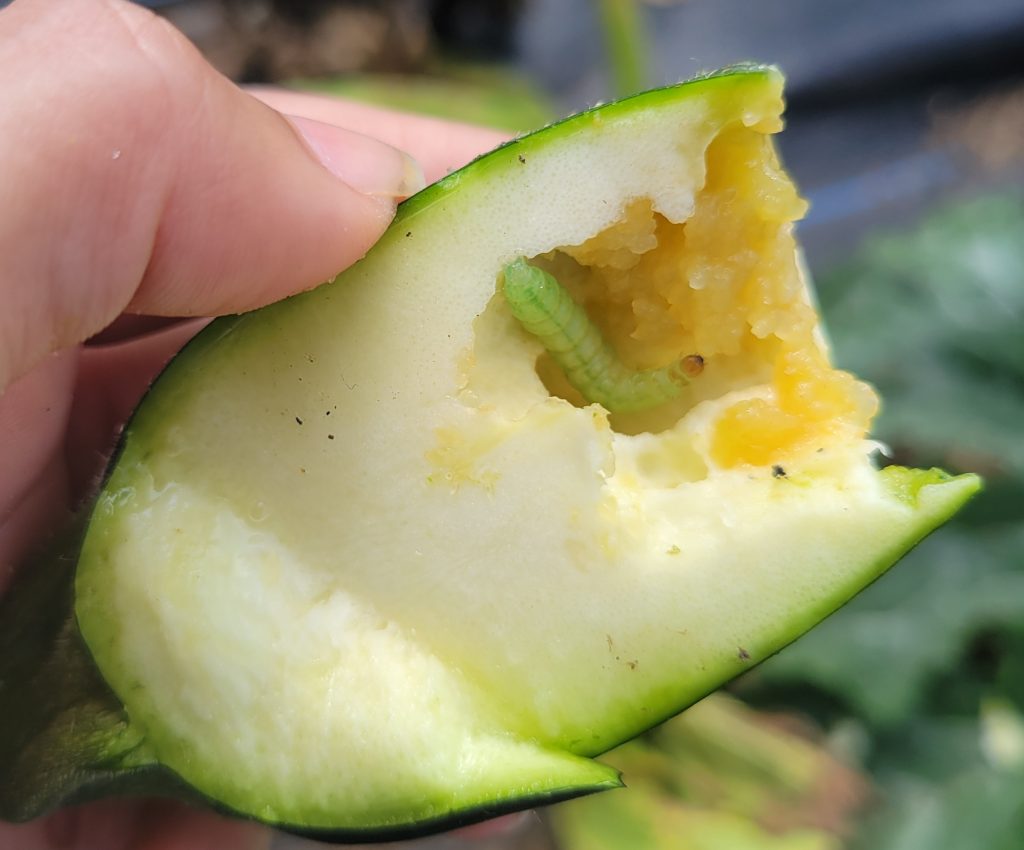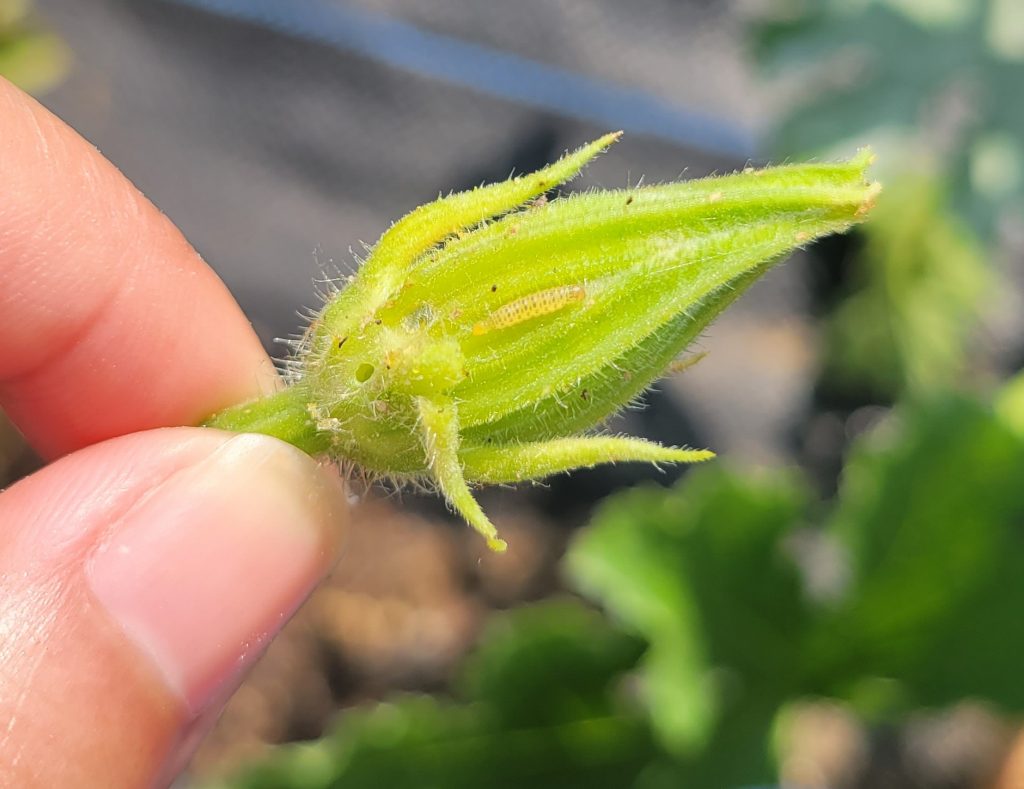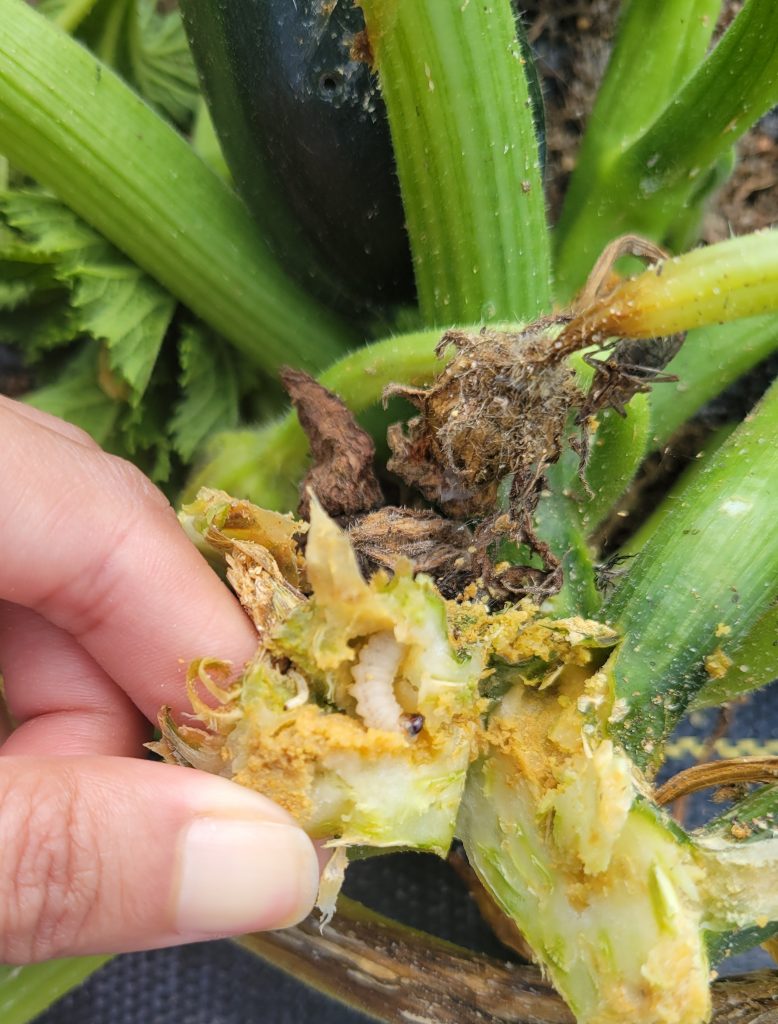Both melonworms and pickleworms have been detected in squash plantings yesterday in Cape Charles and Machipongo farms. Approximately, 80% of the plants showed at least one flower bud/fruit with borrowing injuries. Most of the squash fruit and flower buds contained 1-2 melonworms in the latest stages of their larval development (4th-5th instar, Fig. 1). Pickleworms on the other hand, have just started to show up in the area and only 1st to 3rd larval instars were found, most of them on top of flower buds and growing fruit (Fig. 2). Both pests were also detected in one cucumber planting on approximately 30% of the plants sampled. These pests have been detected in squash plantings in Blacksburg this week at a lower infestation rate compared to the Eastern Shore.
Well-timed insecticide applications are crucial for the management of these pests and recently hatched caterpillars that haven’t borrowed into the plant tissue are more susceptible to insecticides. However, once they borrow inside fruits and flower buds, contact insecticides are usually not enough to suppress these pests. The use of systemic insecticides is preferred.
Useful tip: Pickleworms and melonworms are NOT the same as squash vine borers. Squash vine borers borrow into the stems causing severe damage and eventually plant death (Fig. 3), unlike pickleworms and melonworms that feed mostly on the reproductive parts of the plant and occasionally the leaves.

Fig. 1. Melonworm larvae inside squash fruit. 
Fig. 2. Pickleworm larva on top of flower bud. 
Fig. 3. Squash vine borer inside the stem.
If you find borrowing damage in cucurbit crops on your respective farm or gardens, please contact me at lorelopezq257@vt.edu
Stay tuned for the next update!
Lorena Lopez, Ph.D., Department of Entomology, Eastern Shore AREC, Painter, VA
Photos by Lorena Lopez.
